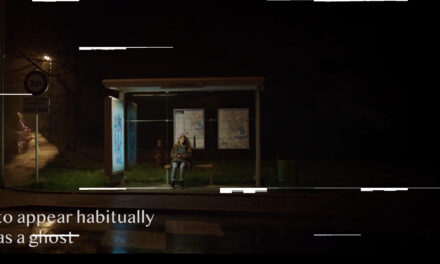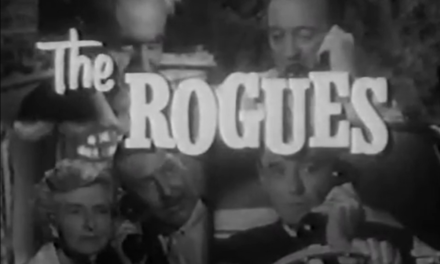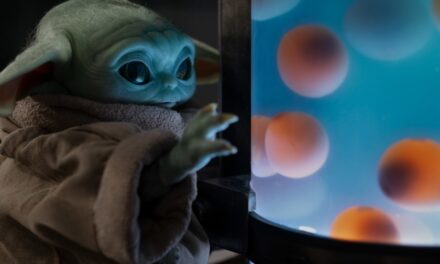It is not uncommon for bands from outside the US to find success in ‘breaking’ the US market through becoming famous in New York City (Edwardson 2008 on Canadian musicians who have done so). This can be thought to be a corollary to the so-called ‘American Dream’ coupled with the Protestant Work Ethic (PWE) and the fallacious belief in a meritocracy, in which anyone who works hard enough can attain success in the form of upward mobility (Fisher 1972, Wyatt-Nichol 2011). It is in this context that the ‘fourth most popular folk band in New Zealand,’ Flight of the Conchords (Jemaine and Bret, played by Jemaine Clement and Bret McKenzie, respectively), moves to New York City to try and make it big. Aided(?) by their good-hearted but not-terribly-competent manager, the New Zealand Embassy’s Deputy Cultural Attache’ Murray Hewitt (Rhys Darby), the two bandmates struggle to find gigs, love and regular jobs, sharing a small dark flat and performing whenever they can.
The television series Flight of the Conchords (FOTC) is based around the band which comedians and musicians Clement and McKenzie developed as part of their comedy act. Both acted as executive producers, creators, writers/songwriters and actors on the series, playing hyper-realised versions of their stage characters. Described in the series itself (2.10) as ‘two struggling musicians, living in poverty and despair…’ as well as ‘a couple of deadbeat guys…and you come to America with a dream…’ and ‘…two hopeless losers,’ FOTC addresses both the migrant[1] experience as well as the fallacy of the ‘American dream.’ Archer (2014: 7) argues that the economic downturns in the 2000s ‘shook confidence in this myth’ of upward mobility, something tied very strongly to the PWE and the fallacy of the meritocracy (Wyatt-Nichol 2011: 258). Fisher (1973: 160-161) specifies that
Actually, the American Dream is two dreams, or, more accurately, it is two myths, myths that we all share in some degree or other and which, when taken together, characterize America as a culture. […] the rags to riches, materialistic myth of individual success and the egalitarian moralistic myth of brotherhood
We see elements of both of these ‘dreams’ in the series. Though often focusing upon romance and how both Jemaine and Bret’s subordinate masculinities function in romantic situations (e.g. Burns and Veri, 2015), the band are in the US explicitly because they believe they can find wealth and fame as well as the fallacy that there would be no sociocultural barriers to them. Yet the band face three problems common to the migrant experience over the course of the series: prejudice, poverty and run-ins with the authorities.
In 1.7, Bret and Jemaine try to buy fruit from a street vendor (Aziz Ansari) but he refuses to trade with them, expressing hatred for people from New Zealand and believing that they are ‘dirty’ and otherwise contaminated. This is done purely on the basis of national identity rather than racial (Clement is part-Maori, explicitly stated in 2.8) but illustrates and satirises a number of points. The band are mystified by how to respond to such prejudice, especially as few of the regular or guest American characters seem to know that New Zealand is a real country (e.g. 1.11). Their best friend Dave (Arj Barker) constantly mistakes them for British people, tying them explicitly to being ‘oppressors’ in this episode – that Dave is Indian-American reinforces this as a postcolonial perspective as well as reminding the audience that New Zealand is, itself, postcolonial (Hall, 1995 on countries being ‘differently’ postcolonial to each other). The situation is resolved when Bret and Jemaine confront the vendor by flipping him ‘the bird’[2] and the vendor’s realisation that he had confused people from New Zealand with Australians. The three characters then bond over their shared prejudice. Using Australians as an exaggerated antagonist and/or stereotype associated with other groups is a common thread across the series. As Lloyd (2009, 2011) notes, in addition to positioning the characters and series as Kiwi (New Zealander), the satirical analogy is so overblown as to avoid causing offence to the Australian audience. That said, in addition to illustrating one of a pitfalls of the migrant experience in the US, it also illustrates that the egalitarian ideal of the ‘American Dream’ is a fallacy as Jemaine and Bret are clearly marked as both different and unequal – Dave refers to them as ‘hated’ purely for their national identity (though, again, Dave mistakes them for British).
Poverty and the inability to find regular work is another recurrent theme in the series. Though the first instance of the band not having work permits is broached in 2.1, it is in 2.2 that money becomes such a concern that both Jemaine and Bret consider prostitution. While this is a reasonably common trope in the context of migration narratives, 2.2 takes a particularly unusual approach. Unlike the view that sex work is shameful or more exploitative than other work, in the episode sex work is equated to other forms of work. We can read this as expressing the decriminalisation of sex work in New Zealand in 2003 which had been opposed on moralistic grounds (Abel et al., 2009; Armstrong, 2010). Armstrong (2010: 39) argues that ‘…decriminalization of sex work in New Zealand provided a platform for change in societal understandings of sex work, but also that a broader paradigm shift is necessary to promote the human rights of sex workers globally.’ We can see something similar in the heteroglossia regarding sex work in general in the episode. Murray and his friend, a Nigerian prince called Nigel (Michael Potts),[3] both refer to prostitution as degrading. This can be read as the dominant view of which Bret is then convinced by the two authority figures. Jemaine, who is interested in sex work (admittedly in part due to a misunderstanding of the film Pretty Woman [1990, dir. Marshall]), and who is about to engage in sex work when Bret intervenes with the police to ‘save’ him, states that sex work is ‘not degrading;’ but the other characters do not listen to him. In this we can see the series critiquing one of the major problems regarding both legal and more general conceptions of sex work, that the perspectives of sex workers themselves are ignored in favour of more conservative viewpoints associated with different forms of authority (Abel et al., 2009).
This leads into the final example, which is run-ins with the law. This begins in 1.3, when Jemaine is mistakenly arrested when he and Bret are mugged – the muggers eventually become their friends, with one of them returning in 2.9 –, but continues intermittently until the end of the series. Relating again to their poverty and inability to break into the formal music scene, as a last-ditch attempt at success, Murray writes, produces and directs an Off-Broadway musical about the band’s experiences in New York City. In addition to being very postmodern (even for a series which blends genres and breaks the fourth wall as commonly as FOTC), the musical’s lack of success is exceeded only by its inclusion of a song in which Jemaine and Bret explicitly state that they are undocumented. As such, they (and Murray, presumably for aiding and abetting) are deported back to New Zealand and return to their previous jobs there as shepherds. They are shown to be happy there, making music with found objects in the bright sunshine, rather than making music with found objects in their dark New York flat in which they are told off for being too loud. Thus, it is a happy ending, showing the fallacy of the ‘American Dream’ in that happiness begins at home, doing what one loves, rather than looking for fame or material success.
The series, by contrast, ended because Clement and McKenzie chose to end it, despite its success, due to the unrelenting pressures of production. Though they still occasionally tour together as Flight of the Conchords, both have expanded their career horizons. Clement, along with FOTC writer/director Taika Waititi, wrote, starred in and executive produced the film What We Do in the Shadows (2014, dir. Clement and Waititi) which then became the television series What We Do in the Shadows (FX 2019-present) in which both executive produce and occasionally appear. McKenzie has found work as a composer and music supervisor in several films, including winning an Oscar for the song ‘Man or Muppet?’ in The Muppets (2011, dir. Bobin). Thus while the series is the ‘…story of two guys who start at the bottom, and with a lot of hard work continue along the bottom and finally end up at the bottom’ (Jemaine 2.10) and whose American Dream ended as a [successful?] failure, McKenzie and Clement’s upward mobility and breaking into the American market (cf Edwardson, 2008) allowed them to control their own careers and end things, at least at that time, on their own terms. This was not quite a rags to riches story, but it was certainly a large collaboration and subverted the overly moralistic conservativism of the US (and NZ) at every turn. Nevertheless, it certainly seems that autonomy and subsequent opportunity definitely arose for Flight of the Conchords due to this Kiwi/American Dream.
Dr Melissa Beattie is a recovering Classicist who was awarded a PhD in Theatre, Film and TV Studies from Aberystwyth University where she studied Torchwood and national identity through fan/audience research as well as textual analysis. She has published and presented several papers relating to transnational television, audience research and/or national identity. She will be joining the American University of Phnom Penh in August 2023 as an Assistant Professor of English/Humanities. She has previously worked at universities in the US, Korea, Pakistan and Armenia. She can be contacted at tritogeneia@aol.com.
Footnotes
[1] I am using the term ‘migrant’ throughout as a relatively neutral term.
[2] Also known as giving someone the [middle] finger; it is broadly equivalent to the British gesture of flicking the Vs.
[3] Nigel Saladu is from a plotline satirising the email scam of faux ‘Nigerian prices’ emailing offering investment opportunities.
References
Abel G M et al (2009) The impact of decriminalisation on the number of sex workers in New Zealand. Journal of Social Policy 38:3, pp. 515–531. https://doi.org/10.1017/S0047279409003080
Archer J (2014) The Resilience of Myth: The Politics of the American Dream. Traditional Dwellings and Settlements Review. Vol. 25:2, pp. 7-22. https://jstor.org/stable/24347714
Armstrong L (2010) Out of the shadows (and into a bit of light): Decriminalization, human rights and street-based sex work in New Zealand. In Hardy, K. et al (eds). New Sociologies of Sex Work. Aldershot: Ashgate, pp. 39-58.
Burns K A and Veri M J (2015) A queer analysis of HBO’s Flight of the Conchords. Journal of Gender Studies, 24:6, pp. 605-620. https://doi.org/10.1080/09589236.2013.863726
Edwardson R (2008) Canuck Rock. Toronto: University of Toronto Press.
Fisher W R (1973) Reaffirmation and subversion of the American dream. Quarterly Journal of Speech, 59:2, pp. 160-167. https://doi.org/10.1080/00335637309383164
Hall, S. (1995) ‘When was the post-colonial?’ [online] available from http://readingtheperiphery.org/hall/ . (accessed 20/11/22).
Lloyd M (2009) Nerds in the city: Flight of the Conchords makes good television humour. Media Industries Australia 131, pp. 57-67. https://doi.org/10.1177/1329878X0913100107
Lloyd M (2011) When Jemaine met Keitha: Flight of the Conchords tackle Australia. Continuum: Journal of Media & Cultural Studies, 25:3, pp. 415-426. https://doi.org/10.1080/10304312.2011.562966
Wyatt-Nichol H (2011) The enduring myth of the American Dream: Mobility, marginalization, and hope. International Journal Of Organization Theory And Behavior, 14:2, pp. 258-279. http://hdl.handle.net/11603/3685





